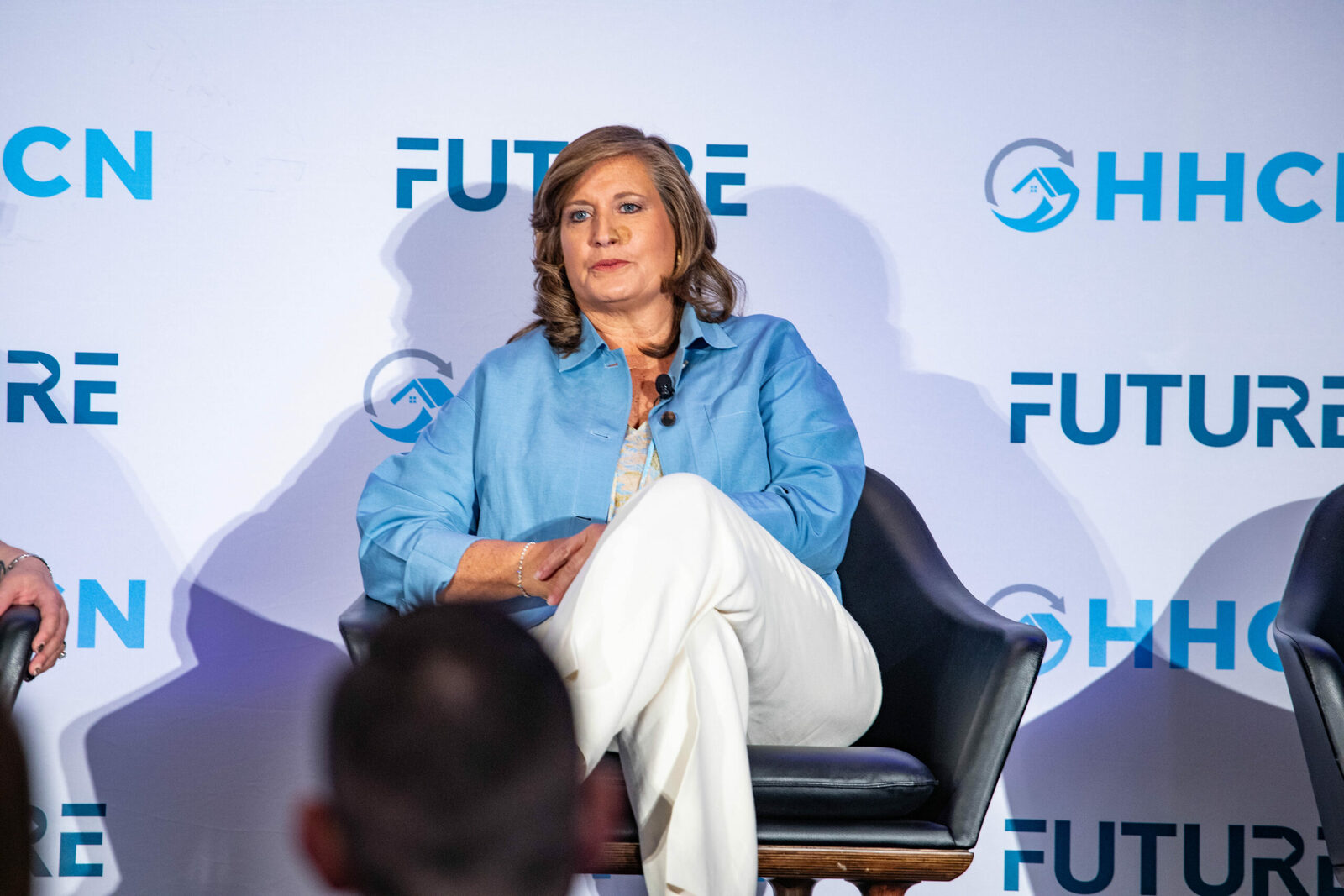Notifications
ALL BUSINESS
COMIDA
DIRECTORIES
ENTERTAINMENT
FINER THINGS
HEALTH
MARKETPLACE
MEMBER's ONLY
MONEY MATTER$
MOTIVATIONAL
NEWS & WEATHER
TECHNOLOGIA
TV NETWORKS
VIDEOS
VOTE USA 2026/2028
INVESTOR RELATIONS
COMING 2026 / 2027
ALL BUSINESS
COMIDA
DIRECTORIES
ENTERTAINMENT
FINER THINGS
HEALTH
MARKETPLACE
MEMBER's ONLY
MONEY MATTER$
MOTIVATIONAL
NEWS & WEATHER
TECHNOLOGIA
TV NETWORKS
VIDEOS
VOTE USA 2026/2028
INVESTOR RELATIONS
COMING 2026 / 2027
About Me
 Latinos Media
Latinos Media Latinos Media provides all types of news feeds on a daily basis to our Members
Posted by - Latinos Media -
on - October 4, 2023 -
Filed in - Salud -
-
778 Views - 0 Comments - 0 Likes - 0 Reviews

April Anthony is used to running large home health and hospice entities.
VitalCaring – where she now serves as CEO – is still smaller than what she’s used to. It likely won’t be small for long, however.
Despite her industry clout, a smaller footprint has made it hard to negotiate with Medicare Advantage (MA) plans.
“We’re having some meetings, but we’re not having success yet,” Anthony told Home Health Care News last month. “It’s one thing to get somebody to sit there and nod, but it’s another thing to get them actually signed up for something.”
Based in Dallas, VitalCaring is a home health and hospice provider with dozens of locations across Texas, Oklahoma, Louisiana, Mississippi, Alabama and Florida. The company first came onto the scene earlier this year.
Anthony owns a third of VitalCaring herself, with the PE firms Nautic Partners and The Vistria owning the other two thirds.
It still has a larger footprint than most home health agencies, and Anthony is a much more recognizable name than most leaders in the industry. If it’s difficult for her company to get payers to recognize the value of home health care – and pay more for it – imagine the difficulty that exists for most small- to mid-sized providers across the country.
Anthony pointed out at Home Health Care News’ FUTURE conference last month that, while Medicare fee-for-service rate cuts aren’t ideal, if an MA plan offered to pay those traditional rates – even with cuts – providers would be elated.
“We would all be like, ‘Sign me up, man,’” she said.
Basically, VitalCaring’s traditional Medicare rates come in at $200+ per visit. Overall and on average, MA rates come in at about $120. That’s a massive difference.
Those MA rates haven’t increased much over the last decade. Meanwhile, nursing salaries have increased from “maybe $65,000 to $90,000 over the same time period,” Anthony said.
Part of the issue is that there’s always likely to be at least one home health provider in a market that’s willing to take on poor rates from payers. VitalCaring has even had to start refusing to take on subpar rates in certain markets.
“There are certain markets where we’ve just turned the volume practically off,” Anthony said. “In our Florida region, our cost structure is such that we just can’t cover even the cost of that $120 payment. We’ve just said, ‘We can’t take business where I pay you to care for your patient.’ So, there are certain markets where we’ve just turned the volume very low. And there are other markets where I think we’re getting to a point where we’ve been able to create enough operational efficiency to afford that.”
Meeting plans in the middle would be a fine outcome for most providers.
For Anthony, it’s about bringing the rates up so there’s at least a slim margin for VitalCaring, and then also turning payments into episodic ones.
“We’re just trying to figure out how we shift to – I don’t call it Medicare anymore – more episodic payment,” she said. “I don’t care who is behind the episodic payment, but I need an episodic payment. And if I’m getting a per visit payment, and it’s below $160, I’m not happy.”
During the first year of VitalCaring, there’s been a lot more on Anthony and her team’s plate than just MA contracts. In fact, those have been back burnered, to a certain extent.
Building a cohesive brand and culture was first up. But that build-up is also the first step to pursuing more high-value business.
“It’s about how we pursue that pivot to the Medicare episodic, and then how we get in front of these payers and justify why they should think about us – and pay us – differently,” she said. “We’ll see if we can turn those conversations into contracts. But so far, it’s more conversations than contracts.”
Growth opportunitiesEven if VitalCaring isn’t being “taken seriously” because of its current size – as Anthony said – that may soon change.
As it does grow, the focus is mostly on the Southeastern U.S. – Anthony likes Georgia, the Carolinas, and Kentucky as expansion areas. But she also like Arizona, Colorado, Nevada and Utah in the Southwestern U.S.
Growth and expansion is one of VitalCaring’s main goals over the next year. Another goal is trying to find a “balance of quality revenue.”
If it takes on more MA patients, it’ll need to find a way to drive efficiencies in certain markets to make the business profitable and sustainable.
Anthony also believes there’s becoming a void in the market as other public home health companies get bought up by other, larger health care companies. That could also be an advantage moving forward, she believes.
“If you think about five years ago, you had all these founder-owned, founder-ran businesses,” she said. “The people who were around the table leading home health businesses were lifers. They were people who were passionate about home health care. Now, that’s not necessarily [the case]. There’s this void in the market that I’m super excited about stepping into. We have the opportunity to bring the heart back to home health care.”
The post VitalCaring CEO April Anthony On ‘Turning More Conversations Into Contracts’ With Payers appeared first on Home Health Care News.